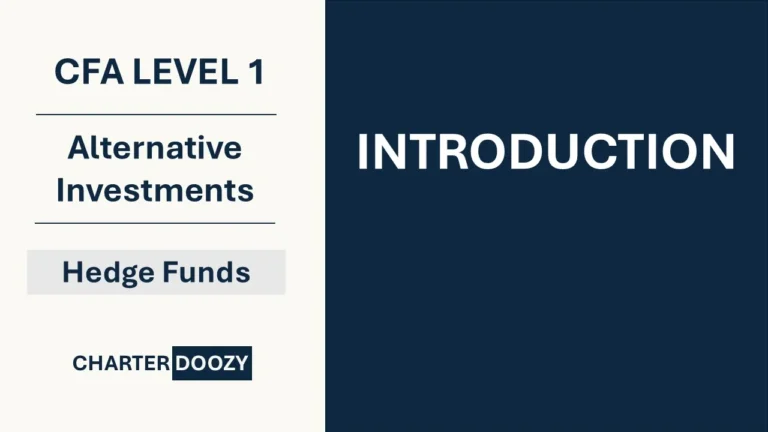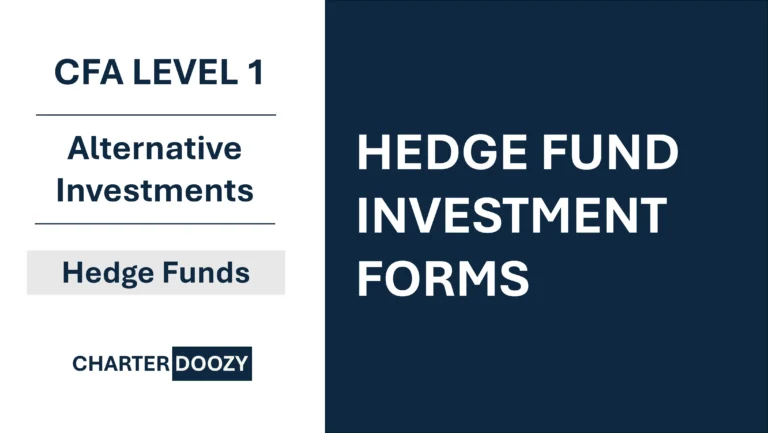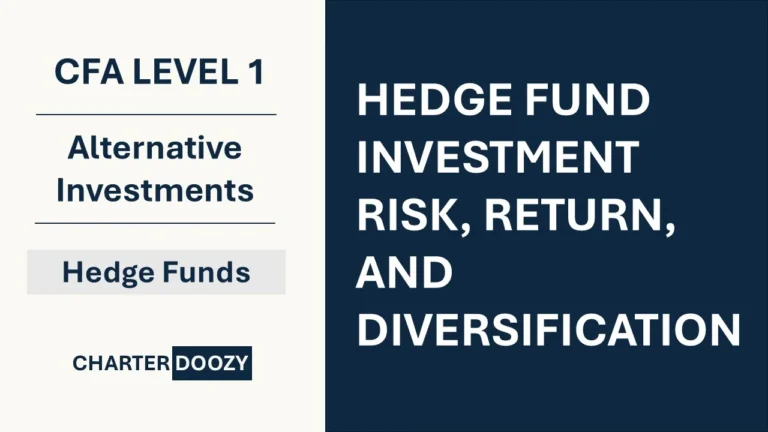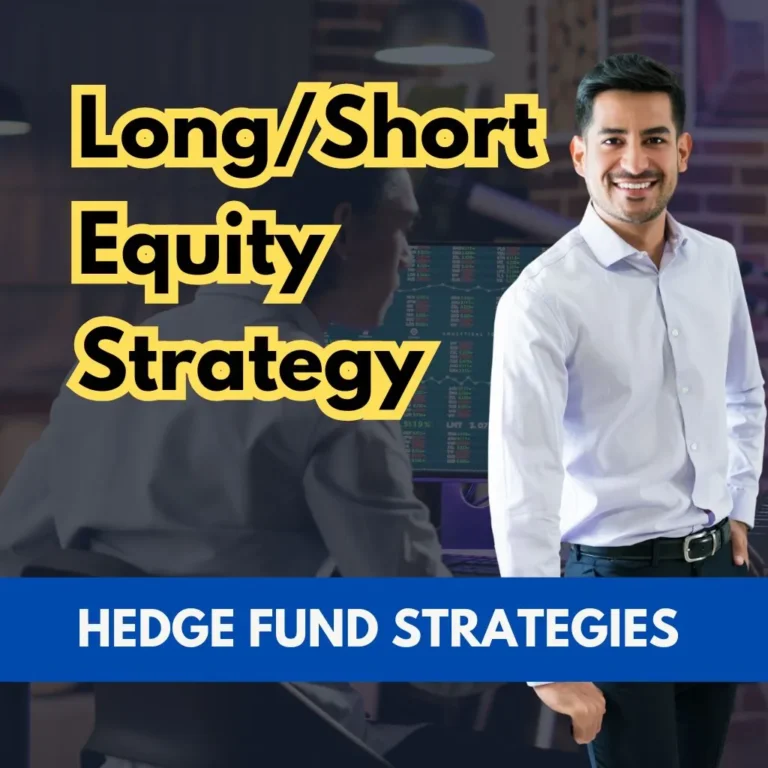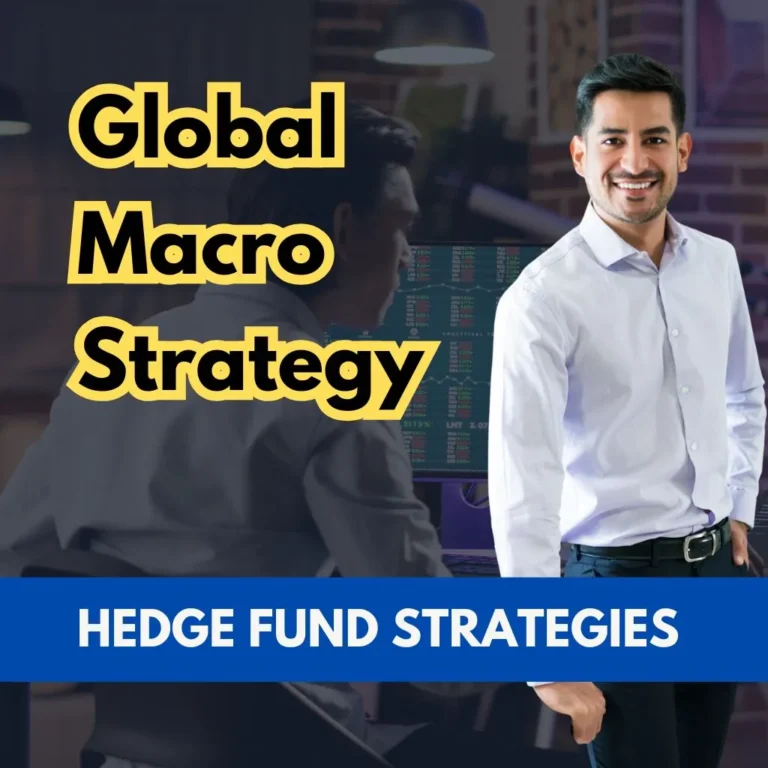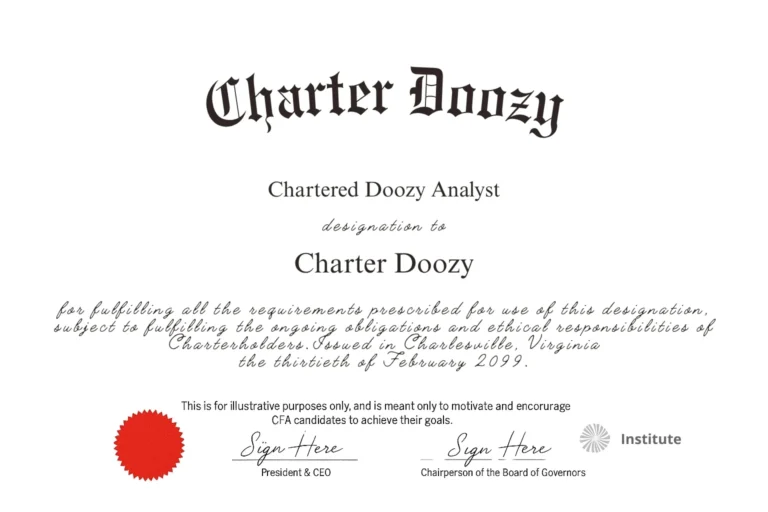🔒 Download Supplementary Reading List to take your understanding to the next level
🔓 Download Terminology List covered in this video
Flashcards: Introduction to Digital Assets

Hedge Funds: The Bold Frontier of Investing [A Primer for CFA Level I Candidates]
Imagine a world where investors aren’t simply riding the waves of the stock market – they’re trying to ride ripples and side currents and tsunamis!
Where financial managers deploy complex strategies to capture opportunities invisible to ordinary eyes.
This is the world of hedge funds, one of the most fascinating and often misunderstood corners of the financial industry.
If you’re preparing for the CFA Level I exam, you’ll inevitably encounter hedge funds under the Alternative Investments topic.
But before diving into formulas and classifications, it’s worth stepping back to understand why hedge funds exist, what makes them unique, and why they continue to command the attention (and money) of some of the world’s biggest investors.
From Simple Hedges to Complex Strategies
The term “hedge fund” traces back to the 1940s, when a journalist-turned-investor named Alfred Winslow Jones pioneered the idea of hedging equity investments.
His concept was straightforward: protect a portfolio of stocks by taking offsetting short positions, thereby reducing the impact of broad market swings.
Yet over time, hedge funds evolved far beyond their roots.
Today, the name is almost misleading.
Many hedge funds don’t hedge at all in the traditional sense.
Instead, they’ve become sophisticated private investment vehicles, able to invest in a dizzying range of assets— stocks, bonds, currencies, commodities, derivatives, private companies, even real estate.
They deploy advanced strategies, often using leverage, short selling, and complex instruments, aiming not merely to keep up with markets but to generate returns independent of them.
This focus on “absolute returns” (making money whether markets go up, down, or sideways) is a defining feature of hedge funds.

Freedom… and Its Price
One of the reasons hedge funds are so captivating is their freedom. Unlike mutual funds, which face strict regulations and must report holdings publicly, hedge funds operate with fewer constraints.
They can shift swiftly between asset classes, pursue unconventional ideas, and take large positions in niche markets.
However, this freedom comes with costs.
Hedge funds are typically open only to institutional investors and high-net-worth individuals who can bear the risks – and afford the steep fees.
The classic hedge fund fee model is the famed “2 and 20”: a 2% annual management fee plus 20% of any profits.
Investors pay for access not just to unique strategies but also to the talents of managers who claim they can find value others miss.
Yet that promise is not guaranteed. Hedge funds can (and sometimes do) lose substantial sums.
Their secrecy and complexity have fueled both admiration and criticism, particularly during financial crises when some funds have imploded spectacularly.
Not an Asset Class (A Universe of Strategies)
It’s easy to think of hedge funds as one investment type, but this would be a mistake. Hedge funds are not a single asset class like stocks or bonds.
Instead, they’re a collection of diverse investment vehicles distinguished by how they invest rather than what they invest in.
Consider just a few examples:
Long/Short Equity Funds bet on stocks they expect to rise and against those they expect to fall.
Event-Driven Funds look to profit from corporate actions such as mergers, bankruptcies, or restructurings.
Global Macro Funds wager on big-picture economic shifts, placing bets across currencies, interest rates, and commodities.
Relative Value Funds exploit pricing differences between related securities.
Managed Futures Funds use quantitative models to ride trends across markets.
The variety is astonishing.
Two hedge funds might both own stocks but pursue entirely different objectives, hold wildly different positions, and display completely different risk profiles.
Interested in Learning About Other Hedge Fund Strategies?
A Magnet for Talent and Innovation
Hedge funds are often staffed by some of the brightest minds in finance: PhDs in physics and mathematics, former intelligence analysts, seasoned traders, and experts in obscure market niches.
These professionals sift through mountains of data, seeking patterns, inefficiencies, and fleeting opportunities that might escape traditional investors.
This intellectual arms race has made hedge funds a testing ground for innovation in finance… from sophisticated risk models to advanced trading algorithms.
Why Hedge Funds Matter
So why does the CFA curriculum care about hedge funds?
Because hedge funds play an outsized role in global markets. Though they manage only a fraction of the world’s investable assets compared to mutual funds or pension funds, their trades can move markets, uncover hidden risks, and shape liquidity. For institutions seeking diversification, hedge funds offer returns that sometimes move independently of broader markets – a valuable tool for managing risk.
Yet hedge funds are not magic. Their higher fees, lower transparency, and complex strategies mean they’re not suitable for every investor.
But for CFA candidates (and anyone pursuing a career in investment management) understanding how hedge funds operate, where they fit in a portfolio, and what risks they carry is essential.
The Journey Ahead
As you progress through your CFA Level I studies, you’ll dive deeper into how hedge funds are structured, the strategies they use, and the ways investors measure their risks and returns.
You’ll explore terms like leverage, absolute return, alpha, and beta.
You’ll learn how hedge funds differ from mutual funds, private equity, and other vehicles.
But remember this: beyond the textbook definitions, hedge funds represent the adventurous, innovative, and sometimes perilous side of investing.
They are a reminder that in finance, as in life, outsized rewards often come with outsized risks… and that true skill lies in knowing how to navigate both.
Welcome to the world of hedge funds.
It’s going to be an interesting ride.

